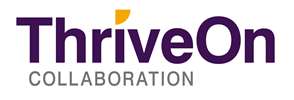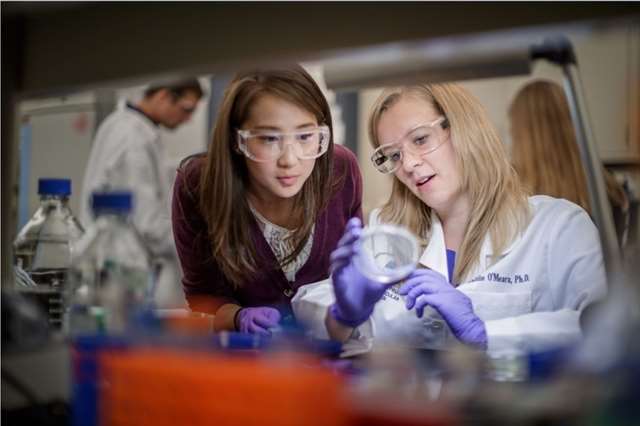Community-centered Collaboration Led by MCW, GMF and Royal Capital Group Announces Name, Key Focus Areas
Milwaukee, Wis., Sept. 10, 2020 – The community-centered collaboration led by the Medical College of Wisconsin (MCW), the Greater Milwaukee Foundation (GMF), and Royal Capital Group has chosen the name of the ThriveOn Collaboration as the organizations continue deep resident and stakeholder engagement together to inform priorities and investments for supporting a thriving King Drive corridor and its connected neighborhoods.

The ThriveOn Collaboration champions a vision for a Milwaukee that is equitable, healthy and thriving for all. Achieving this vision will require partnerships with the community, focus on places where investment has been scarce, and supporting people of color, especially African Americans, who are disproportionately affected by health and social disparities.
The ThriveOn Collaboration is built on the fundamental understanding that where a person lives has a tremendous impact on their health and wellbeing because housing, education, jobs, health resources and social connections are the underpinnings of healthy lives and communities. Consequently, a key component of the ThriveOn Collaboration is a place-based investment in the redevelopment of 2153 N. Martin L King Jr. Dr. into a community hub with neighborhood amenities, and offices for key MCW centers and programs and the Foundation’s new headquarters.
“For Milwaukee to thrive, we are approaching solutions differently than ever before,” said Ellen Gilligan, president and CEO of the Foundation. “We are rejecting and working to replace systems that generate uneven and unjust outcomes, particularly for people of color. We are centering community voices and ideas. We are honoring the generational commitment to racial equity and inclusion the Foundation made in 2016 with the bold action it requires. The ThriveOn Collaboration is the perfect expression of our shared values, and our work together is a catalyst for economic and social change in our city.”
Ongoing dialogue with residents, deep analysis of local and national data, and years of expertise in their respective sectors has shaped the collaborators’ approach to identifying priorities and developing thoughtful solutions that will add value to the community. The ThriveOn Collaboration’s corresponding strategies are designed to dismantle systemic racism and reverse the disinvestment that has negatively impacted black and brown communities in Milwaukee for generations.
“At this time, we are suffering simultaneously from three inter-related crises – a global pandemic, an economic crisis, and systemic racism. It should come as no surprise that the COVID-19 pandemic and the economic crisis have had disproportionate impacts on people of color, and especially African American and Black people,” said John R. Raymond, Sr., MD, president and CEO of MCW. “Achieving health equity is more important than ever before, and inherently requires addressing racial equity. By honoring this community's history, culture and people, and by listening and collaborating every step of the way, we hope to accomplish our shared mission to support and sustain a united, equitable, thriving community.”
FIVE PRIORITIES
The ThriveOn Collaboration has identified five priority areas for program development and investment. These areas are informed by the social determinants of health, factors that contribute significantly to health such as where people live, access to healthy foods and affordable housing, and social support networks.
Housing – The ThriveOn Collaboration aims to invest in the availability of safe, quality and affordable housing for area residents. The long-term goal is to increase the number of residents leasing, purchasing, and maintaining homes with a focus on keeping long-time residents in the neighborhood.
Early Childhood Education – The ThriveOn Collaboration aims to invest in the quality, access and sustainability of early childhood education in the city. The long-term goal is to improve education outcomes for youth.
Health & Wellness – The ThriveOn Collaboration aims to invest in access to health and wellness facilities, healthy food options and preventive health services in the area. The long-term goal is to reduce rates of chronic disease and increase quality and length of life.
Social Cohesion – The ThriveOn Collaboration aims to support the community in building positive social and business relationships, celebrating diversity and promoting a sense of belonging among neighbors. The long-term goal is to increase resources for resident-led events and organizations.
Economic Opportunity – The ThriveOn Collaboration aims to support small business and enhance equitable economic opportunities for entrepreneurs and the local workforce. The long-term goal is to increase the stability of the small business community and increase access to quality jobs.
THE THRIVE ON COLLABORATION
The ThriveOn Collaboration reflects the views and values of community shared through continuous dialogue and participation among residents, the collaborating organizations and other community leaders. These conversations help shape the collaboration’s goals and how the work moves forward. Community engagement for the ThriveOn Collaboration remains active. Staff members currently are holding virtual office hours, and the team is establishing a Community Advisory Council (CAC). The goal of the CAC is to integrate community perspective and participation by ensuring residents have meaningful decision-making power within the collaboration. The role of the CAC is to include a community voice in grantmaking and program initiatives that promote an equitable, healthy and thriving community with a focus on the Harambee, Halyard Park and Brewers Hill neighborhoods.
The ThriveOn Collaboration has already been working to implement its vision and priorities. Its commitments in community have included:
- Helping to prevent resident displacement through partnership in the MKE United Anti-Displacement Fund. Housed at the Foundation, which contributed seed funding, the Fund so far has provided about $37,000 in property tax relief to 114 homeowners in the Harambee, Halyard Park, Brewers Hill and Walker’s Point neighborhoods, the majority of whom were over 60 years old.
- Approving approximately $100 million for joint investment in building improvement and development, including streetscaping and exterior art and green design.
- Providing more than $13.2 million in grants through the Foundation and Advancing a Healthier Wisconsin Endowment led by Medical College of Wisconsin experts and community agency partners in support of COVID-19 relief, response, and recovery related to food, shelter, health, education, economic stabilization and more.
FUTURE SITE
When redeveloped, the collaboration’s corresponding Milwaukee location on King Drive and, adjacent to Dr. Vel Phillips Avenue and West Garfield Avenue, will support health and growth, and be a destination where Halyard Park, Harambee and Brewers Hill neighbors can interact, learn and share.
“With our collaborative efforts, we have the opportunity before us to influence meaningful change that will have an intergenerational impact. Impact that recognizes the challenges in racial, health, and economic equity,” said Kevin Newell, president and CEO of Royal Capital Group. “At Royal Capital, we are leaders in urban development and innovation, and we are proud to stand with our partners at the Medical College of Wisconsin and the Greater Milwaukee Foundation, and we are even more proud for the opportunity to stand up for our community.”
Keep up with the latest news. Sign up for Newsroom Alerts.
Latest press releases, stories and resources.
MCW Media Contacts
The media relations team at MCW is happy to assist in coordinating experts for interviews. Please reach out to us at:
media@mcw.edu
(414) 955-8764
Contact us




